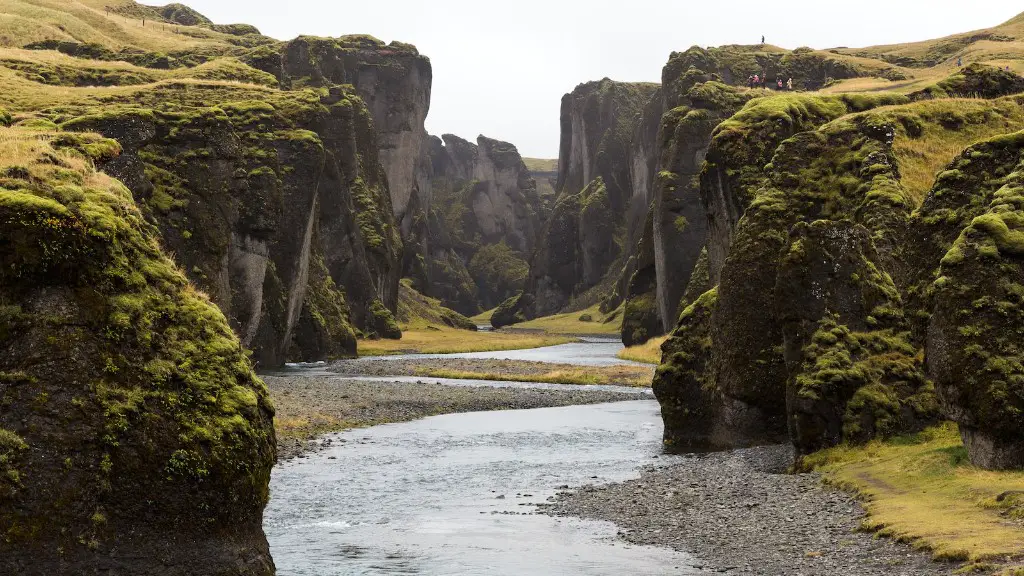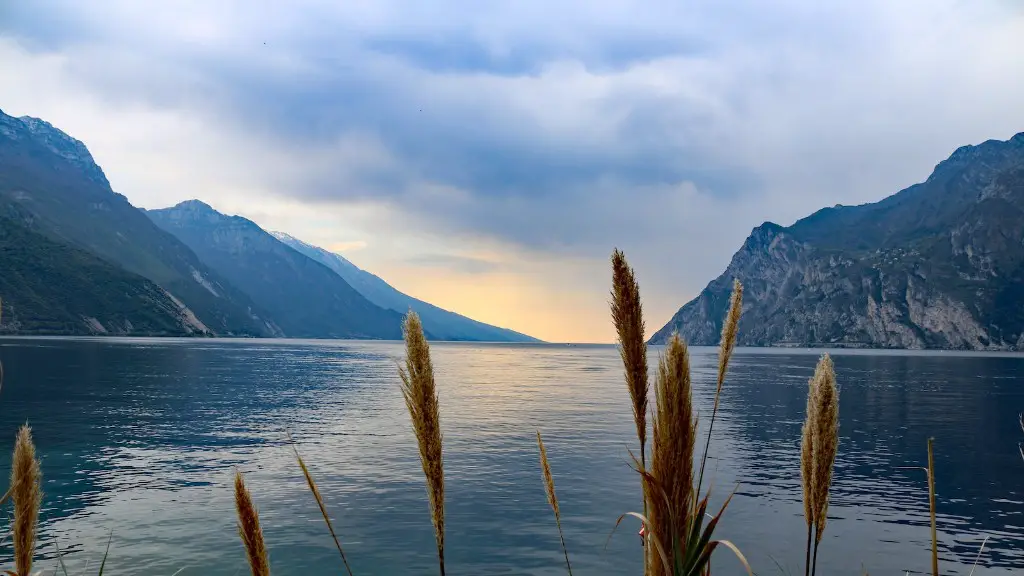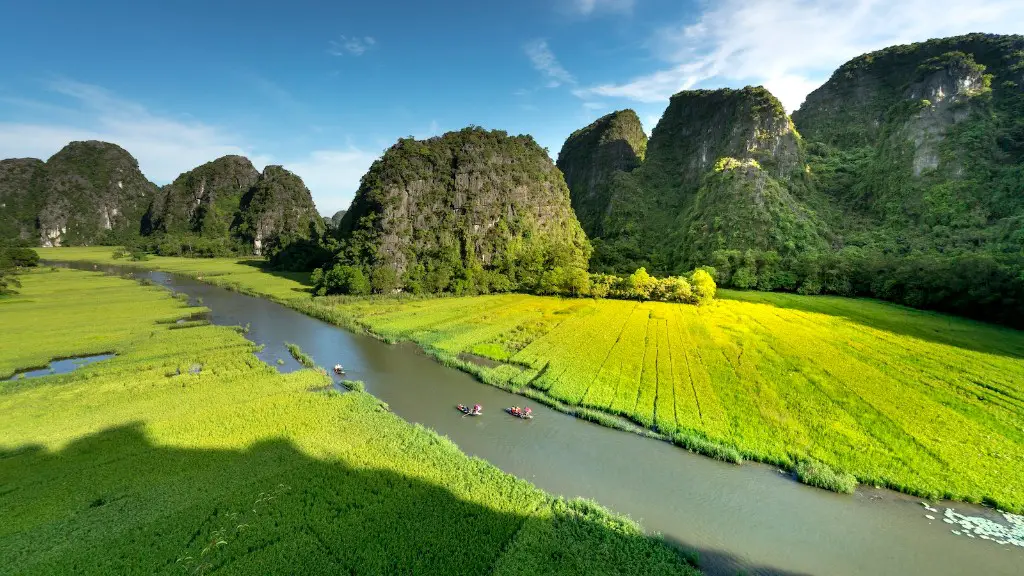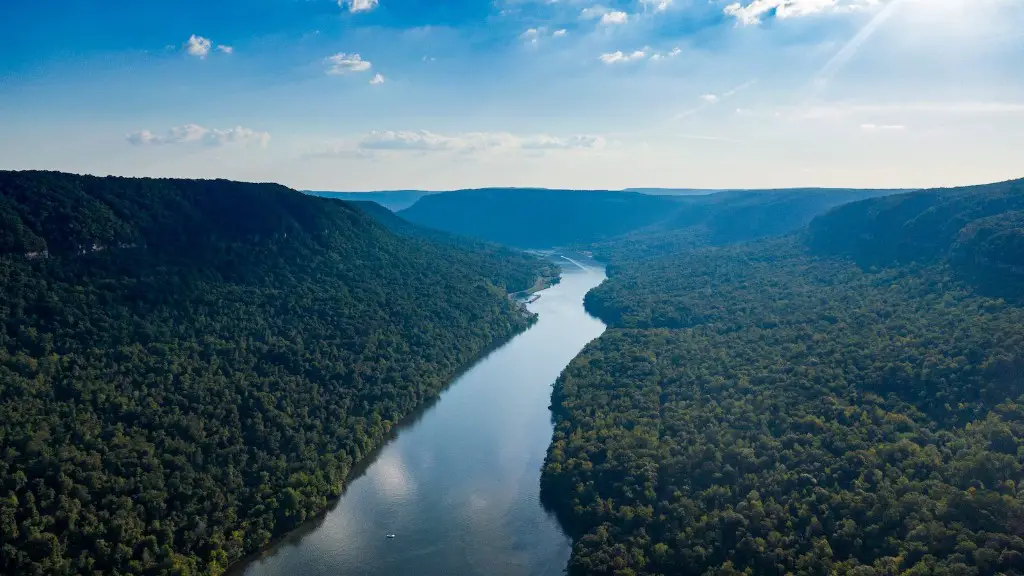Can you spend days floating down the mighty Mississippi River in a canoe and kayak? For many years people have asked if it is legal to swim in the Mississippi. While it may seem exciting to dive in and go for a satisfying swim, there are safety and legal considerations that should be taken into account before taking the plunge.
While the Mississippi River provides a stunning backdrop to any outdoor activity, its waters can contain hazardous pollutants and other toxins that can cause health problems. Water measured at the Mississippi River contains extremely large amounts of human and agricultural waste, the effect of which can be far-reaching. Recent studies have shown that the river may contain high levels of E. coli, a type of bacteria that can cause gastrointestinal illnesses. Additionally, the river may contain heavy metals, chemicals, and any number of viruses or bacteria that can cause severe illnesses in swimmers.
The quality of the water can also vary greatly depending on the weather and location. Run-off from heavy rains can cause a spike in pollutants and bacteria, meaning it may not be safe to swim even if a certain area of the river is normally clean. Also, while much of the river is privately owned, there are sections that are under the control of the US Army Corps of Engineers, the National Park Service and other government entities. Regulations vary, so it is important to know the specific rules of the area before entering the water.
Swimming in the Mississippi River may have legal repercussions, in addition to health consequences. Depending on the area, swimming may be considered trespassing, since access is restricted. Furthermore, property owners of the riverbed reserve the right to bar people from entering these areas in some states. In addition, some areas of the river are illegal to swim in, as their waters are deep and navigation can be extremely dangerous.
In conclusion, while it can be tempting to go for a swim in the mighty Mississippi River, it is important to consider any potential health and legal risks before taking the plunge. The rapid currents, depth, and varying levels of contamination may affect the safety of anyone entering the waters. As such, it is recommended that people looking to enjoy the river do so by engaging in non-contact activities such as boating or fishing.
Ecological Impact
The Mississippi River is a large and important natural resource, and human activities can have a negative effect on its delicate ecosystem. The growth of agriculture and industry over the past few years has led to increased levels of pollution in the river. Water contaminated with pesticides, hazardous waste, and microplastics has been found in parts of the river, threatening the livelihood of its aquatic inhabitants. Studies have also linked the introduction of pollutants to higher mortality rates among fish and other aquatic species. In addition, high levels of pollutants can have negative consequences on human health, as some contaminants may be carcinogenic and can cause cancer.
The presence of swimmers may also bring about an ecological disruption to the river. As swimmers move about in the water, they can disturb the plant and fish life beneath the surface, leading to a disruption in local food webs. Additionally, As biologists point out, human interaction can throw off the balance of a delicate ecosystem, impacting the health of the river overall.
Regional Regulations
With all the potential hazard and ecological risk associated with swimming in the Mississippi River, it is important to be aware of regional regulations regarding activities in the river. Individual states may have specific laws regarding the waters, and it is illegal to violate them. Even if it is permitted to swim in an area of the river, other activities such as water skiing, jet skiing, and boating may be restricted, so it is important to know the regulations of a given region before entering the waters.
In addition, those looking to spend time on the river should be aware of the Environmental Protection Agency’s (EPA) regulations on swimming in bodies of water. Some states may be subject to certain EPA standards regarding water quality, and it is important to know if an area is compliant before taking the plunge.
Advice and Tips
If you are considering swimming in the Mississippi River, it is important to understand the potential risks associated with the activity. Swimming in water contaminated with pollutants can have a negative effect on your health, so it is important to research the amount of pollutants present in a given area before entering.
In addition, you should be aware of the legal implications of entering the river. Trespassing laws may exist in certain areas, so it is important to stay in specific sections designated for swimming and other recreational activities. It is also important to check with local government to make sure you are compliant with any EPA or other regulations related to water quality.
Finally, anyone looking to swim in the Mississippi River should take appropriate safety precautions. Make sure there are lifeguards present, and also ensure that any area is well-marked for safe navigation. Swimming in deep waters can be dangerous if you are unable to identify your path back to shore, so it is important to be mindful.
Alternative Activities
If you are looking to explore the Mississippi River but do not want to risk the potential health and legal repercussions of swimming, there are a number of other activities available. Boating, kayaking, canoeing, and jet skiing are popular options for those wanting to take in the natural beauty of the river. Fishing is also a popular activity and provides an opportunity to explore the region’s aquatic wildlife.
Other activities such as camping and hiking may also be available, even if swimming is not permitted. Many areas of the river provide stunning natural landscapes, making them great spots to explore. Additionally, some areas may have other attractions such as historical sites that can provide unique insights into the region’s past.
Finally, those looking for a less physical experience can explore the river from the comfort of a sightseeing boat or tour. These tours provide a great way to learn about the region’s history, flora and fauna without the risk of swimming in its waters.
Ecological Restoration
With all the hazards and pollutants present in the Mississippi River, one question is how these areas can be restored to their former magnificence. The answer to this question can be found in large-scale ecological restoration projects that have been undertaken in recent years. The US Army Corps of Engineers and the National Park Service have been working to reduce pollutants and improve water quality in the waters of the Mississippi River.
Methods used to improve the river’s ecology include the implementation of treatment plants and other systems to reduce contaminants in the water. Additionally, promoting sustainability practices and educating people on the importance of conservation can serve to reduce the amount of pollution entering the river. Replanting of aquatic plants and the introduction of fish and other species have also been successful in restoring the river’s ecosystem.
Ecological restoration projects of this scale require a great deal of money and coordination. Fortunately, non-profit organizations, local businesses, and governmental agencies are coming together to clean up the river and help restore its purity. With the help of these groups and a concerted effort from citizens, it may be possible to restore the River to its former glory.
Volunteer Opportunities
For those looking to give back and support the restoration of the Mississippi River, volunteer opportunities are available. Organizations such as the Nature Conservancy, the Sierra Club, and the World Wildlife Fund have volunteer programs focused on environmental protection, aimed at restoring and protecting endangered ecosystems. In addition, local conservation groups and state and federal agencies also have programs in which volunteers can help carry out ecological restoration projects.
There are also opportunities to volunteer with grassroots programs and initiatives to help clean and restore the river. Waterway cleanups are a great way to get involved in the community and help protect the River from further contamination. Furthermore, educational programs may be available to teach people about the importance of conservation, and how personal choices can have an effect on the River’s health.
If you are looking for ways to help the Mississippi River, volunteering is a great way to get involved and bring about real change. By taking part in volunteer programs and initiatives, you can help preserve and protect the river, while also educating others on the importance of conservation.





